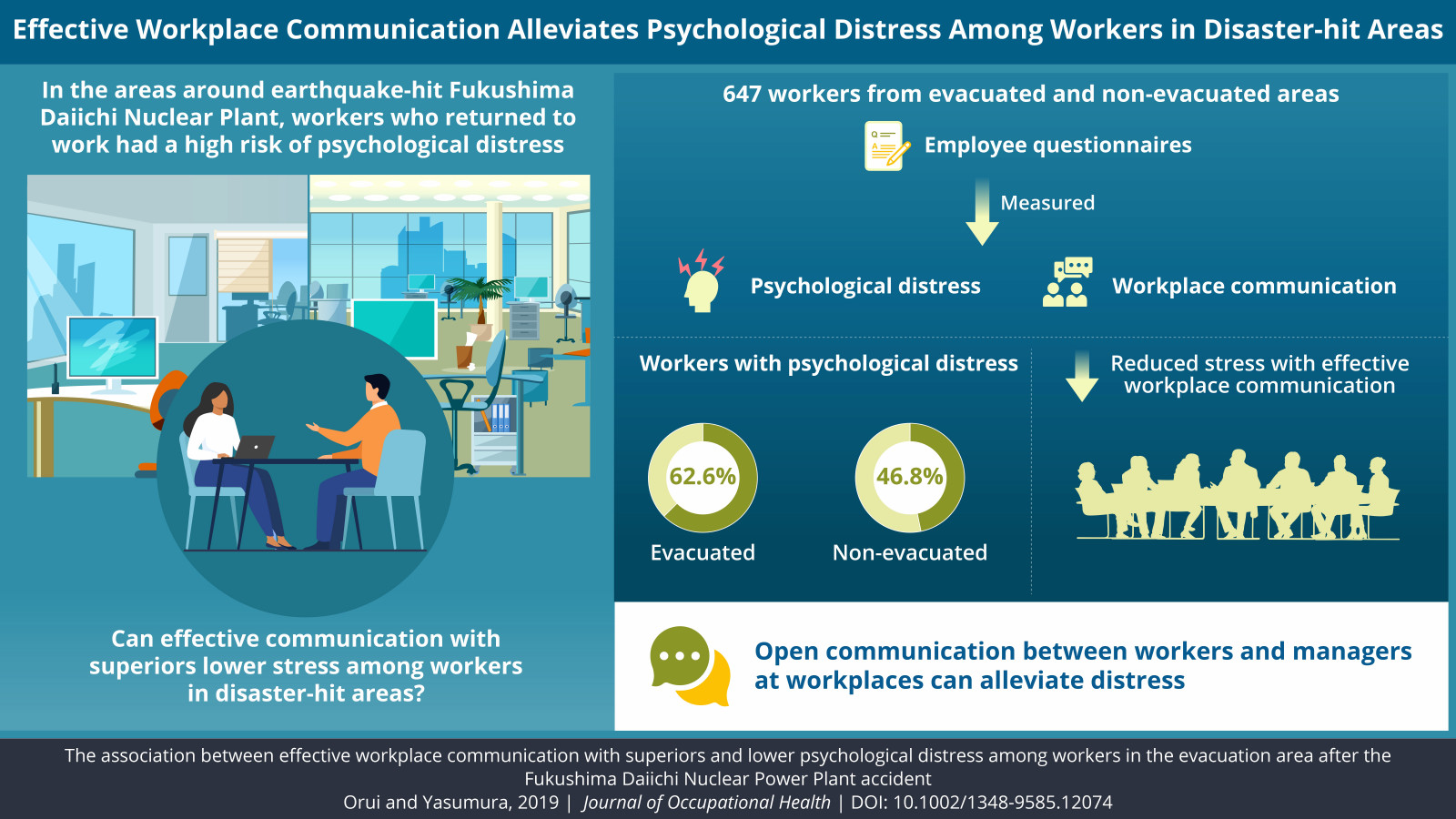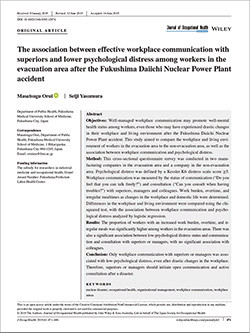#0001 Effective Workplace Communication and Lower Psychological Distress after a Disaster

Effective strategies to manage work-related stress
After the Great East Japan earthquake hit the Fukushima Daiichi Nuclear Power Plant in 2011, many residents from nearby municipalities were evacuated to areas designated by the Japanese government. Some of these people, however, were temporarily allowed to return for work purposes. However, in the aftermath of the disaster, the workers faced an increased risk of mental distress. To this end, researchers dug deeper into effective strategies to manage work-related stress in the wake of a disaster.
Previous studies have shown that effective workplace communication can lower distress among workers in regular circumstances. In this study, the researchers investigated if the same can be said of workers working in evacuated areas after a disaster. They also compared the workplace and living environments of workers from evacuated areas with those of workers from a non-evacuated region.

In their study, cross-sectional data were collected using an employee questionnaire from three medium-sized manufacturing companies (two from the evacuated regions and one from a control company in the non-evacuated region). A total of 647 employees from evacuated and non-evacuated regions provided their perceptions of the changes in their workplace environment and domestic life after the disaster, their interactions with their superiors and colleagues, and the psychological distress they experienced.
Open communication between workers and managers at workplaces can alleviate distress
The researchers found that the proportion of workers who experienced an increase in their work burden and often had to work overtime or eat meals at irregular hours was significantly greater in the evacuated regions. In fact, the proportion of workers experiencing psychological distress was also greater in these regions, ie, 62.6% (compared to 46.8% among workers from non-evacuated regions). Significantly, however, levels of psychological distress were much lower among workers who effectively communicated with their superiors and managers.
These findings suggest that disasters can disrupt the domestic lives and workplace environments and may increase the burden on workers. Nonetheless, if managers and superiors at workplaces can initiate open communications and engage in active consultations, workers can experience significantly less distress even after disasters.
Link to the original journal article:
https://onlinelibrary.wiley.com/doi/10.1002/1348-9585.12074
Title of the journal article:
The association between effective workplace communication with superiors and lower psychological distress among workers in the evacuation area after the Fukushima Daiichi Nuclear Power Plant accident
Authors:
Masatsugu Orui, Seiji Yasumura





